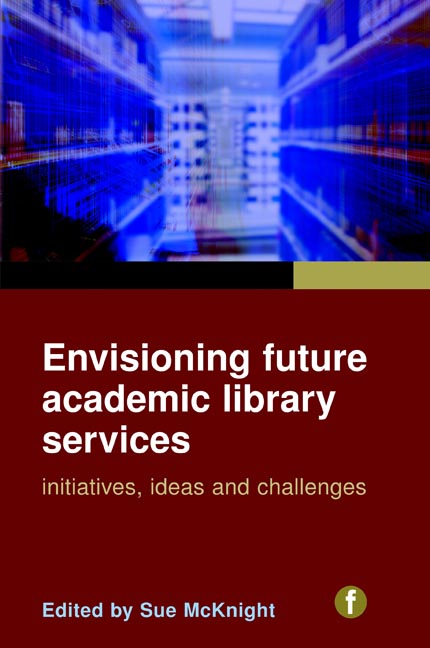Book contents
- Frontmatter
- Contents
- Foreword
- Contributors
- Introduction: We create the future!
- 1 Waiting for the barbarians: seeking solutions or awaiting answers?
- 2 The delete generation: how citizen-created content is transforming libraries
- 3 Libraries as places: challenges for the future
- 4 Web 2.0: redefining and extending the service commitment of the academic library
- 5 Second Life and libraries: boom or bust?
- 6 Some new business ideas in the HSS publishing space: what may librarians expect?
- 7 Loosely joined: the discovery and consumption of scholarly content in the digital era
- 8 Knowledge management, universities and libraries
- 9 Libraries and the management of research data
- 10 The leadership of the future
- 11 Adding value to learning and teaching
- 12 In search of the road ahead: the future of academic libraries in China
- Index
6 - Some new business ideas in the HSS publishing space: what may librarians expect?
Published online by Cambridge University Press: 08 June 2018
- Frontmatter
- Contents
- Foreword
- Contributors
- Introduction: We create the future!
- 1 Waiting for the barbarians: seeking solutions or awaiting answers?
- 2 The delete generation: how citizen-created content is transforming libraries
- 3 Libraries as places: challenges for the future
- 4 Web 2.0: redefining and extending the service commitment of the academic library
- 5 Second Life and libraries: boom or bust?
- 6 Some new business ideas in the HSS publishing space: what may librarians expect?
- 7 Loosely joined: the discovery and consumption of scholarly content in the digital era
- 8 Knowledge management, universities and libraries
- 9 Libraries and the management of research data
- 10 The leadership of the future
- 11 Adding value to learning and teaching
- 12 In search of the road ahead: the future of academic libraries in China
- Index
Summary
Introduction
Academic publishers don't like edited volumes. They believe that libraries are more likely to purchase single-authored volumes instead. They groan when academics come along with proposals for edited volumes. Sometimes these are accepted as a tactic to catch the editor and turn him or her into an author of a book-length work that conventional wisdom says will sell more copies. The sprat to catch a mackerel. However, there are some topics that require a breadth of knowledge that surpasses the experience and wisdom of any particular individual. The contents of this book, for instance, would have been impossible for one individual to cover with the depth and experience of the contributors assembled here. And even if such a paragon of wisdom were to exist, by the time the relevant data was assembled, the book would be out of date.
We are all, writers and readers, grappling to understand the fastmoving environment in which we live and operate. Some try to preserve old world virtues, whilst others are steaming ahead into uncharted waters, creating new models and methods – often with unforeseen consequences. The purpose of this chapter is to highlight some of the challenges facing traditional scholarly publishers as they've tried to adapt to the new digital environment. It aims to map out some key concerns from a variety of perspectives and then indulge in some blue-sky thinking as to how the future might look. My thoughts are informed by our attempts at Bloomsbury Academic to build a new business model with flexible licensing practices at its core. It intends to make the best use of both old and new media as they co-exist in the very unstable period of transition that we are in today.
Ring-fencing the discussion
The scope of this chapter is limited to a very specific area of academic publishing: library collections – the prime venue (whether physical or virtual) where scholars and students find content. It deals with humanities and social science (HSS) books, or the ‘long form publication’ as some refer to books in the online environment. Reference will be made to scientific, technical and medical (STM) and professional publishing. Developments in the scholarly journal world do, of course, have implications for the future of the book.
- Type
- Chapter
- Information
- Envisioning Future Academic Library ServicesInitiatives, ideas and challenges, pp. 87 - 100Publisher: FacetPrint publication year: 2010



